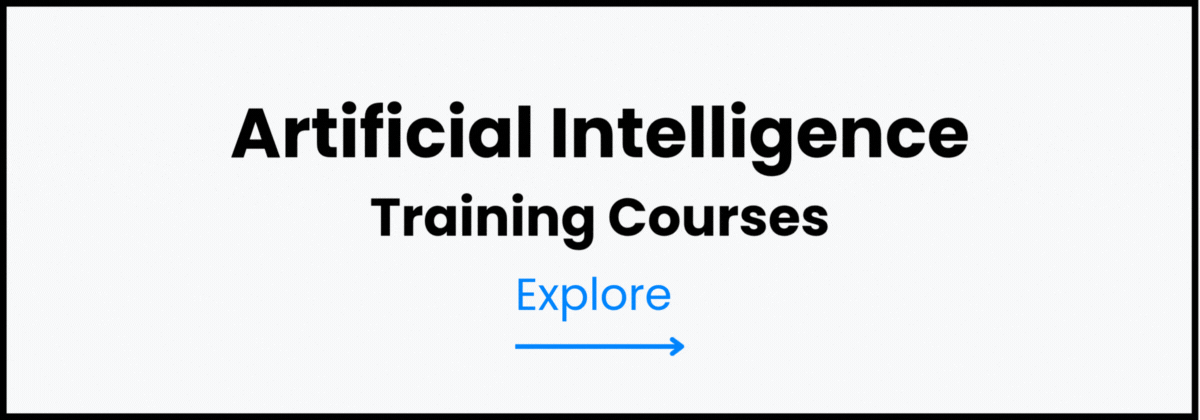Key Steps for Successful AI Implementation in Business Operations
Artificial Intelligence (AI) is no longer a futuristic concept; it is a present-day business imperative. Across industries, AI is transforming how organizations operate, make decisions, and deliver value to customers. However, despite its potential, many businesses struggle to implement AI successfully, often due to unclear strategies, lack of skills, or insufficient integration into existing workflows.
This article presents a step-by-step guide to ensure successful AI implementation in business operations. It also highlights how professional training and upskilling can accelerate this journey by equipping teams with the right knowledge and competencies.
Understanding the Business Value of AI Implementation
AI’s applications are vast—from automating mundane tasks and enhancing data analytics to predicting customer behavior and enabling personalized experiences. Successful AI integration allows organizations to:
- Improve operational efficiency
- Optimize decision-making through predictive analytics
- Enhance customer service and satisfaction
- Drive innovation and create new business models
- Reduce costs while improving agilitya
Despite these advantages, realizing the full potential of AI requires a structured approach, clear objectives, and a skilled workforce.
Step 1: Define Clear Business Objectives for AI
The first step toward successful AI implementation is defining specific business objectives. AI projects should not be driven by technology alone but should address clearly articulated problems or opportunities.
- Key questions to address include:
- What business challenges are we aiming to solve?
- What processes or functions can AI enhance or automate?
- How will success be measured?
Aligning AI initiatives with broader organizational goals ensures that resources are effectively utilized and expectations are realistic.
The Artificial Intelligence (AI) course by EuroMaTech provides foundational knowledge for business leaders and managers to understand AI’s capabilities and how to align them with strategic goals.
Step 2: Conduct a Readiness Assessment
Before embarking on AI projects, businesses should assess their current capabilities, infrastructure, and data maturity. This involves:
- Evaluating the availability and quality of data
- Assessing existing technological infrastructure and tools
- Identifying skill gaps in AI, data science, and change management
- Reviewing governance, policies, and compliance requirements
The AI & Machine Learning Policy and Oversight course offers insights into setting the right policies and frameworks for ethical, responsible, and compliant AI usage.
Step 3: Build a Strong Data Foundation
Data is the fuel of AI. Successful AI implementation hinges on the availability of clean, reliable, and well-structured data.
Best practices include:
- Establishing robust data governance frameworks
- Ensuring data privacy and security compliance
- Investing in data integration, warehousing, and analytics tools
- Training teams on data literacy and stewardship
Businesses can accelerate data-driven decision-making by leveraging AI for advanced analytics through the AI for Data Analytics and Business Intelligence course.
Step 4: Start Small with Pilot Projects
Rather than deploying AI at an enterprise-wide level immediately, it is advisable to start with pilot projects that:
- Focus on specific, measurable use cases
- Allow teams to learn and adapt AI tools
- Help build stakeholder buy-in
- Provide early insights into potential challenges and barriers
Successful pilots can then be scaled into larger initiatives, creating momentum and minimizing risks.
Step 5: Develop Internal AI Capabilities and Skills
AI adoption is as much about people as it is about technology. Organizations must invest in upskilling and reskilling their teams to:
- Understand AI technologies and their applications
- Collaborate effectively with data scientists and AI teams
- Manage AI-driven change in workflows and culture
Leadership teams should also be equipped to champion AI strategies, fostering a culture of innovation, agility, and ethical responsibility.
Courses such as AI Mastery for Leaders empower executives to navigate the complexities of AI implementation from a leadership perspective.
For those seeking deeper technical capabilities, the Certified Artificial Intelligence Practitioner (CAIP) course offers a globally recognized credential, enabling professionals to design, develop, and deploy AI solutions.
Step 6: Integrate AI into Business Processes
AI must be integrated seamlessly into existing business processes and systems to generate value. This requires:
- Identifying where AI can be embedded into workflows
- Redesigning processes to optimize human-AI collaboration
- Ensuring AI outputs are actionable and easily interpretable by end users
- Embedding AI insights into business decision-making tools like dashboards, CRM, and ERP systems
Change management plays a critical role during this phase to manage resistance, set expectations, and guide teams through the transition.
Step 7: Monitor, Optimize, and Scale AI Solutions
AI implementation is not a one-time event; it is an ongoing process of learning, optimization, and scaling. Organizations must:
- Monitor AI performance against KPIs and objectives
- Collect feedback from users and stakeholders
- Address ethical, bias, and privacy considerations proactively
- Refine AI models to improve accuracy and relevance
- Identify new areas where AI can deliver value
Governance and oversight structures should be in place to ensure AI solutions remain transparent, accountable, and aligned with organizational values.
Step 8: Foster an AI-Ready Organizational Culture
An AI-ready culture is one where:
- Innovation and experimentation are encouraged
- Employees feel supported in adopting new technologies
- Cross-functional collaboration is promoted
- Ethical AI usage is embedded into the company’s DNA
Building such a culture requires leadership commitment, transparent communication, recognition of achievements, and continuous learning opportunities.
Professionals can explore the AI & Machine Learning Training Courses offered by EuroMaTech to foster cross-functional understanding and readiness for AI across business units.
Overcoming Common Challenges in AI Implementation
Misaligned Expectations
AI is not a magic bullet. Setting realistic expectations about what AI can and cannot do is critical to avoid disillusionment and wasted investments.
Data Quality Issues
Poor data quality can undermine AI performance. Investing in data preparation, cleansing, and governance is non-negotiable.
Skills Shortage
Lack of internal skills is a common barrier. Upskilling existing teams and collaborating with AI experts or partners can bridge the gap.
Ethical and Compliance Risks
Organizations must proactively address concerns related to bias, privacy, and compliance by embedding ethical AI principles into policies and practices.
Measuring the Success of AI Implementation
The success of AI projects should be measured both quantitatively and qualitatively. Key performance indicators include:
- Operational efficiency improvements
- Cost reductions and ROI from AI investments
- Customer satisfaction and experience enhancements
- Employee productivity and engagement gains
- New revenue streams or business models enabled by AI
Regular reviews and audits ensure that AI solutions continue to deliver business value and adapt to evolving market conditions.
AI as a Strategic Business Transformation Tool
AI has the potential to revolutionize business operations, but its success hinges on more than just technology deployment. A structured, people-centric, and goal-aligned approach is essential to unlock its true value.
By following the key steps outlined in this guide—defining objectives, building data foundations, upskilling teams, integrating AI into processes, and fostering an AI-ready culture—organizations can turn AI into a strategic business transformation tool.
EuroMaTech offers a diverse portfolio of AI & Machine Learning Training Courses and Artificial Intelligence Skills Training designed to equip professionals at all levels with the skills, strategies, and insights needed for successful AI implementation in business operations. AI is reshaping the business landscape those prepared to harness its power will lead the future.





